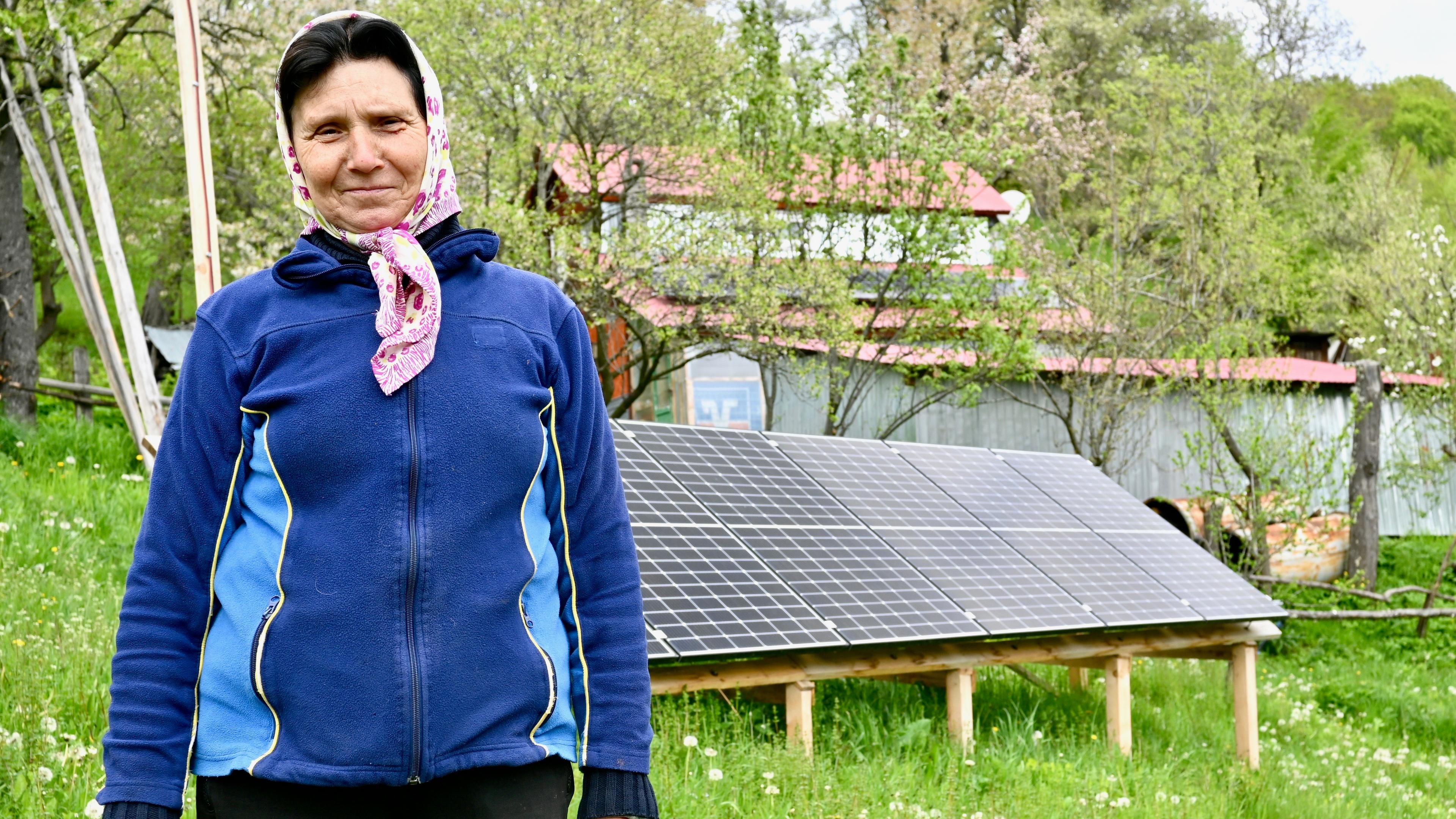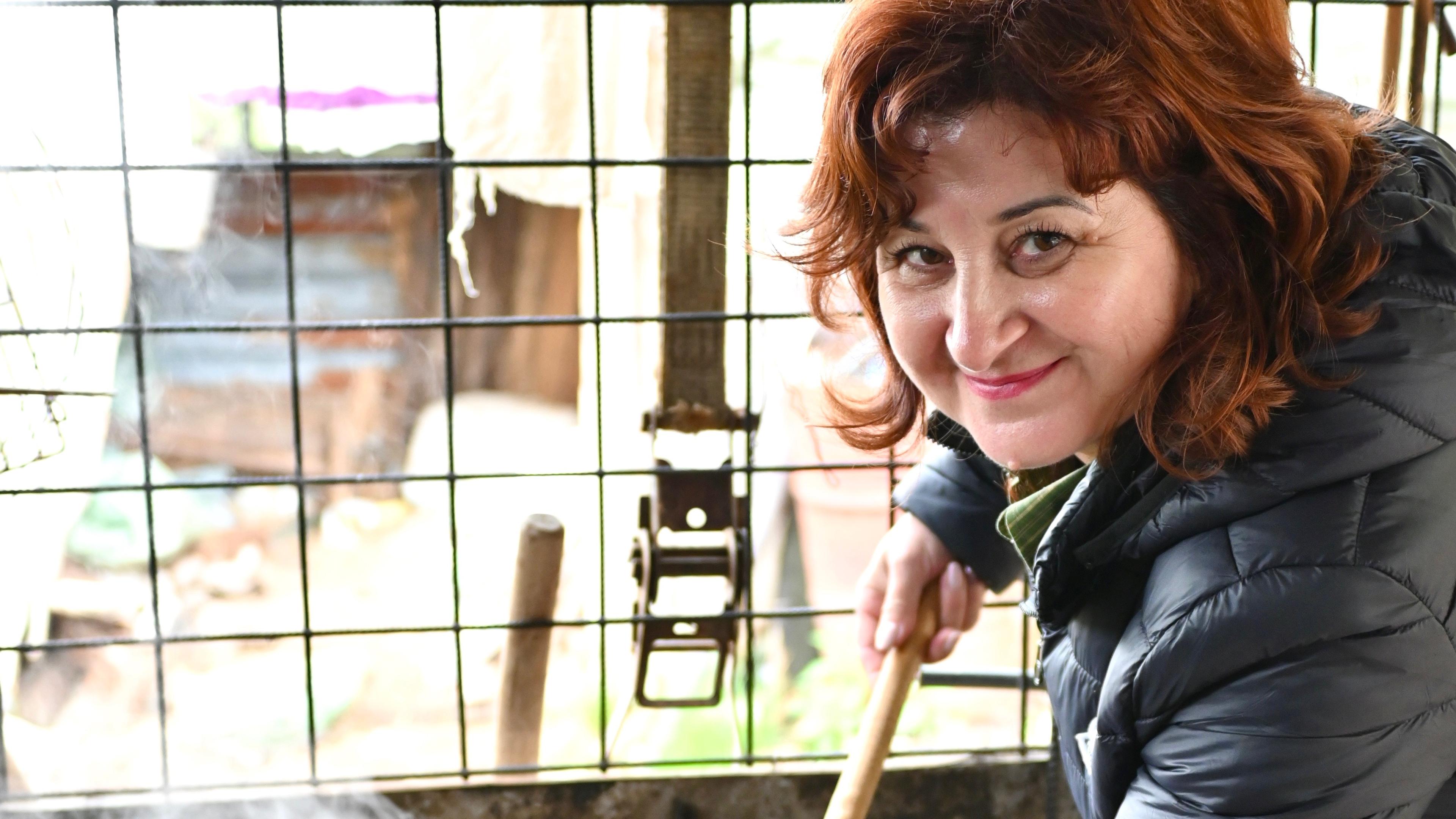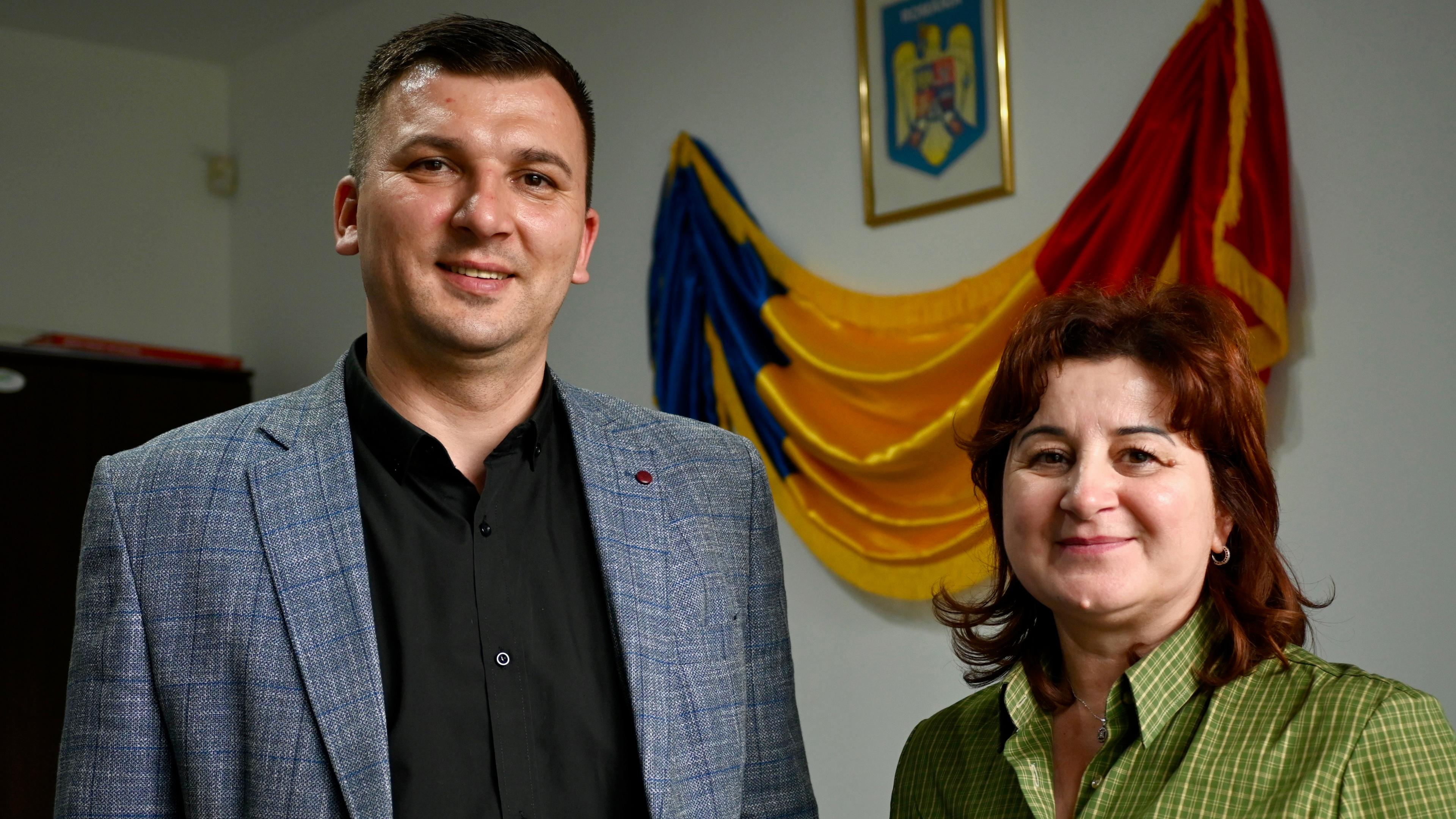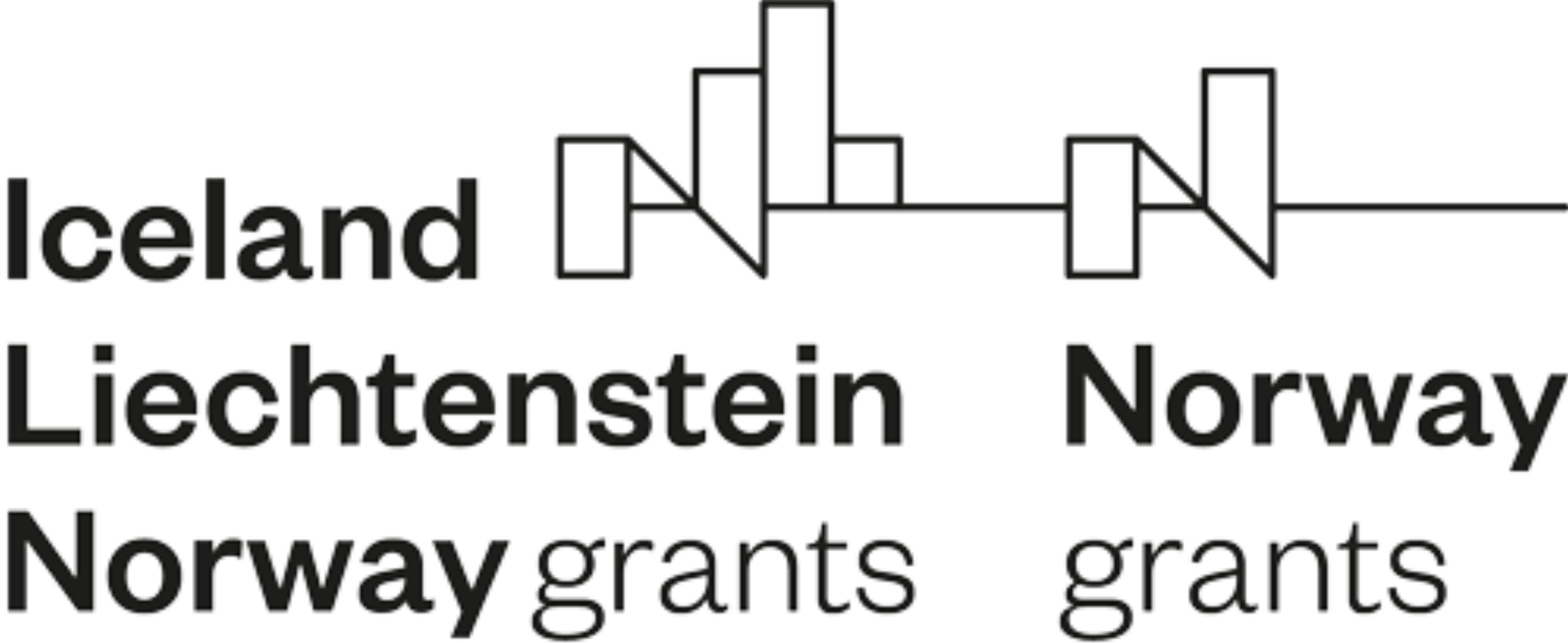Powering Progress: Illuminating Lives through Household Electrification
 © Eva Marie Bulai
© Eva Marie BulaiTo address these issues, the Energy Programme in Romania, managed by Innovation Norway provides grants in efforts to expand electricity access as part of the Electrification of Households Call for Proposals. These projects involve deploying renewable energy solutions like photovoltaic systems with batteries, ensuring basic electrification needs of households where the extension of the electricity grid is not feasible or where the residents cannot either afford the electricity bills.
In an attempt to see the change for ourselves, Innovation Norway visited three different households whose residents have benefitted from the EEA and Norway Grants.
"The Norwegians brought the light to Siriu"
This quote is from Dragos Voicu, Mayor in the small municipality of Siriu. Through the EEA and Norway Grants, 18 people who never had electricity got connected.
Innovation Norway is warmly welcomed by the Deputy Mayor Maria Husu, who is our host guide for the day. We are suggested to change into rubber boots and jump into a four-wheel drive, which makes us immediately come to the realisation this is going to be an off-the-beaten-track experience. As we leave the more central parts of the village behind us, we pass the dam. The Deputy Mayor explains that houses situated after the dam have never been connected to the electricity grid at all.
There is no denying in the fact that we are visiting some of the most isolated households in the municipality.
Fresh goat cheese
As we get out of the car, we have to cross a small river – so we are happy for the rubber boots -, then up a steep, muddy road. We keep to the side in order not to slide down the muddy forest road. Finally, up on the plateau we meet – a cow! The view is fantastic, the grass extraordinary green and the air as fresh as it can be. On our way to Ion Stoica´s farm, we pass a hurdle of sheep that have found their rest on the green pastures.
Mr. Stoica: Welcome! Are you hungry? I was just about to cook some mamaliga (maize porridge) with fresh goat cheese ‘on the fire’, he says with a smile.
When Mr. Stoica says fire, he literally means open fire. The food is prepared outside at an old oven in a big pot. As he shows us the batteries where the power is stored, our driver and the Deputy Mayor stir the food over the fire. It smells delicious.
 © Eva Marie Bulai
© Eva Marie BulaiNever had electricity
Mr. Ion Stoica (66) was born and raised at this farm. Until recently he lived here with his mother, who just passed away. He never had electricity in his whole life. Generators on petrol and batteries have been used to light the flashlights and all the while helping him stay connected to the news and perhaps listen to some music as well.
Mr. Stoica: Now I can turn on two light bulbs for a couple of hours in the evening. More important is that I always have my flashlight fully charged so I can get out of the house during the night when the bear approaches to attack my sheep.
In this rural area, it's not a matter of whether the bear will come, but rather when it will come.
Mr. Stoica has sheep, pigs (even a wild boar) and the cow that just greeted us. The food is ready, and the strong taste of fresh goat cheese is a lot better than what we are used to purchasing from the supermarket.
After the meal, Mr. Stoica shows us the solar panels mounted on the roof. We are told he was quite sceptic to the installation of panels on his property in the very beginning - but when he realized that the new technology could help him protect his herds from bears, his scepticism turned into gratitude.
Food was getting bad
We climb down from the hills and stop the car outside the gate of Maria Vasile (84). She welcomes us and takes us immediately to the kitchen. She shows us the combined fridge and freezer.
Ms. Vasile: I had a fridge before, but I had an unstable power supply and the meat turned bad. Now, with the solar panels and the batteries I can have this big fridge and a freezer.
Innovation Norway: How did your life change after the panels and batteries were installed?
Ms. Vasile – tearing up: It has changed in a very good way. May God give the Mayor good health because of how he has helped us and because he has cared for us. I could say this to my dying day.
Dreams of a washing machine
From Ms. Maria Vasile we turn off the road to a picturesque landscape just by the lake, nothing short of the beauty of the Norwegian fjords. We are told by the Deputy Mayor that one of the boys from this farm is now in a prestigious university in Romania.
Deputy Mayor Maria Husu: He studied night and day, and they had very high energy expenses. They had to use a generator on petrol for lighting.
The absence of electricity hampers educational opportunities and limits access to information. Without reliable power, children struggle to study in the evenings or access online resources for learning. This can perpetuate educational inequalities and hinder the development of skills necessary for economic advancement
The boy’s mother, Ms. Aurica Ciupic is one of the beneficiaries of the solar panels with batteries.
Innovation Norway: What do you use the electricity for now?
Ms. Ciupic: We only have the television connected and some light bulbs.
Innovation Norway: Would you like to have more equipment on electricity?
Ms. Ciupic: Yes, I would really benefit from having a fridge. I was also thinking about a washing machine, if possible, someday...
Innovation Norway: So, how do you do your laundry today?
Ms. Ciupic: By hand, of course...
Still need for electricity
 © Eva Marie Bulai
© Eva Marie BulaiBack at the Town Hall we meet Mayor Dragos Voicu.
Innovation Norway: How do you see the difference from before you implemented this project?
Mayor Dragos Voicu: There is an enormous difference in people’s lives. You have seen it yourself: the smiles on people’s faces. A smile that enables you to go on, do more projects for them.
And that is exactly what the municipality is planning to do. They have already applied for more funding to be able to provide more households with electricity. After Innovation Norway visited the village, they got approval for the project and will implement it shortly.
Electrifying unelectrified households in Romania has the potential to improve living conditions, enhance education and healthcare, and foster economic development. By focusing on equitable access to electricity, Romania can bridge the gap between rural and urban areas, promote social inclusion, and unlock the full potential of all its citizens.
Facts
Programme: Energy Programme in Romania
Grant amount: €59.990
Total project cost: €59.990
Finalised: 30.11.2022
Results
- Electrification of 12 households through installation of photovoltaic panels and batteries
- 18 people who did not have electricity before will be connected to energy solutions
- Training of 18 permanent residences to use the photovoltaic systems
- CO2-emissions decreased by 8.96 tonnes annually
- Production of energy from renewable source of 29.35 MWh/year
The electrification projects selected for financing aim at enhancing the quality of life for communities, bringing improvement in safety and convenience. Electric lighting eliminates the need for dangerous and polluting kerosene lamps or candles, reducing the risk of accidental fires and indoor air pollution. With electricity, households can power appliances like refrigerators, stoves, and washing machines, making daily chores more efficient. This not only improves living standards but also allows the residents to dedicate more time to education, work, and leisure activities. Therefore, it is crucial to invest in electrification initiatives to ensure a brighter and more sustainable future for all people, regardless of where they were born.
About the Energy Programme in Romania
The Energy Programme in Romania, managed by Innovation Norway, aims at less carbon intensive energy and increased energy security, providing grants for investments in renewable energy, energy efficiency and electrification of households. The Programme financing is ensured through the EEA and Norway Grants which contribute to social and economic development in 10 European countries, including Romania.
About Innovation Norway
Innovation Norway is the Norwegian Government's most important instrument for innovation and development of Norwegian enterprises and industry. Innovation Norway supports companies in developing their competitive advantage and to enhance innovation. In Romania, Innovation Norway is managing two programmes: the Energy Programme and the SMEs Growth Programme.
This interview has been conducted in collaboration with Eva Marie Bulai
